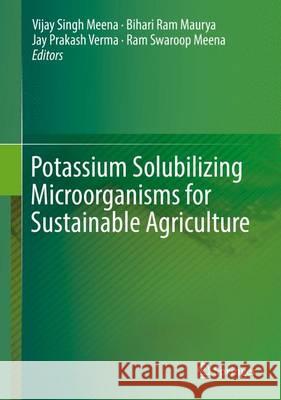Potassium Solubilizing Microorganisms for Sustainable Agriculture » książka
topmenu
Potassium Solubilizing Microorganisms for Sustainable Agriculture
ISBN-13: 9788132227748 / Angielski / Twarda / 2016 / 331 str.
The potassium solubilizing microorganisms (KSMs) are a rhizospheric microorganism which solubilizes the insoluble potassium (K) to soluble forms of K for plant growth and yield.











